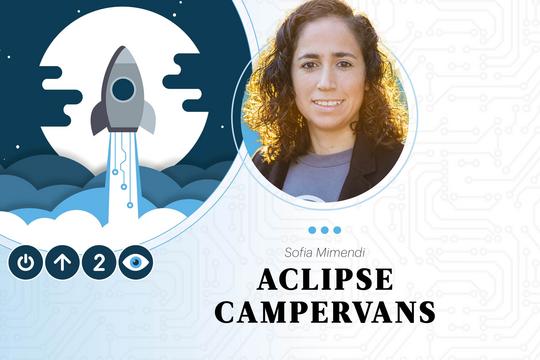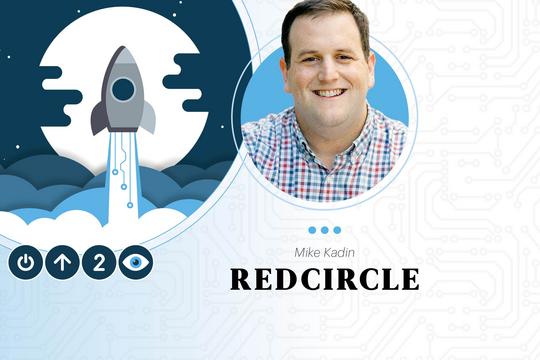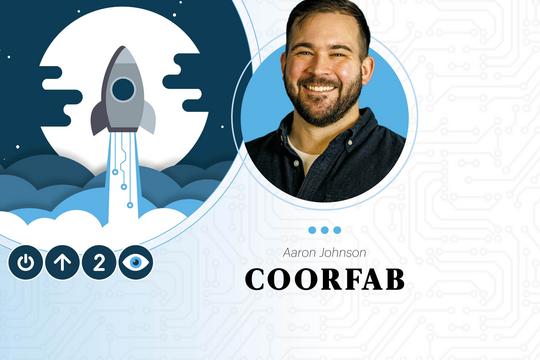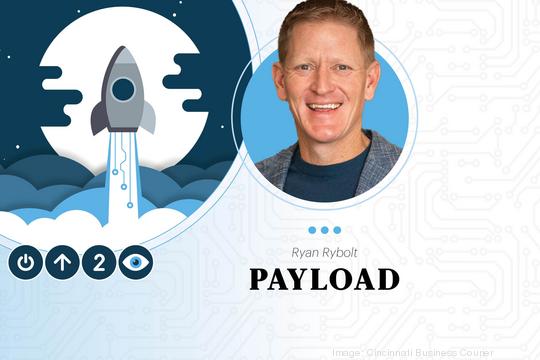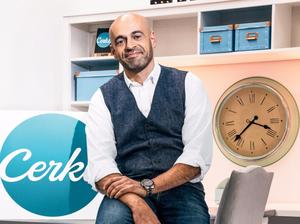It’s been another crazy year here at Cincy Inno. And not just because of a seemingly-never-ending global pandemic. The year 2021 has been a blockbuster for local startups as pent-up demand brought in more than $600 million in venture capital this year alone, shattering previous records. Several upstarts announced plans to go public, including Griid and Blue Water Vaccines, and entrepreneurs aplenty are jumping in to start their second acts – a harbinger of a healthy startup ecosystem.
Now that we’re finally closing in on 2022, we’d like to step back, take stock, and see which companies show outsized potential heading into the new year. For our fourth annual Startups to Watch list, Cincy Inno has highlighted 15 up-and-coming companies that should be on your radar. These early-stagers have established solid traction, either with fresh capital raises, fast revenue growth, impressive hires or innovative solutions to novel problems. We anticipate they’ll leave an outsized mark on our region.
Lerch

When Myron Rivers lost his job in the heart of the pandemic, he initially planned to take some time off to relax. On his short list: Learn to play guitar, practice yoga, read more books, grow out his beard. That lasted about a month.
Consulting work quickly snowballed into a new business venture: Lerch, a software startup that launched in June 2020. The company is a dream mashup for merchants — a mobile event concierge/payment solution/data company that leverages much of Rivers’ previous career experience, and targets event organizers and restaurants of all sizes.
Rivers, a former Courier Forty Under 40 honoree and Leadership Cincinnati graduate, is arguably best known for his stints at the African American Chamber and Minority Business Accelerator at the Cincinnati USA Regional Chamber. He left the latter to help start Tier 1 Payments, a credit card processing company, which was acquired in 2013 by Blue Ash-based Infintech. Rivers remained on the team until his position was eliminated.
Lerch is part Waze (its wayfinding feature offers turn-by-turn directions to your seat, or, if needed, the nearest bathroom) and part Starbucks app (users can pre-order food and beverages, eliminating long waits). The idea, Rivers said, is to modernize the live event experience for both organizers and participants. The company is positioning itself at the forefront of a “right-now economy.”
“The pandemic hurt. People have spent two years indoors looking at Netflix, and they can watch what they want to watch, pause when they want to pause and snack whenever they want to snack. They don’t have to wait for anything,” Rivers said. “When people have an opportunity to go back out into the wild, you can’t give them the same experience they had before. People are going to expect more. This is a really easy way to deliver that.”
Lerch debuted during Asian Food Fest in October, and MadTree, Greater Cincinnati’s second-largest craft brewer, has also implemented the technology at its Oakley taproom. Rivers has also made inroads with the Over-the-Rhine Chamber to roll out Lerch to additional bars and restaurants there.
While Lerch has logged a couple thousand downloads, 43% of those people have registered, far exceeding the typical mobile app conversion rate. Rivers said he initially predicted that at around 10%. Overall, pretty good traction for a company that has spent little on user acquisition as it builds out its IP.
“We’ve been doing a guerrilla campaign, just using our connections and knocking on doors,” Rivers said. “I’m a great salesman, but honestly, I haven’t had to do a whole lot of selling. Once they see Lerch and experience it, they want to participate.”
Lerch landed an early investment from Cincinnati-based Formidable Asset Management and is on pace for a seed round this winter. Will Brown, managing partner at Formidable, called the platform “one of the most dynamic software solutions” he’s ever seen.
While the company’s VIP component is a standout offering — Rivers said MLB’s Ballpark app is its only true competitor — its value prop will come from its data insights. Lerch provides theaters, stadiums, bars and festivals information on what customers want, and how they spend their time and money. If Lerch can fully develop that piece of the puzzle, the sky’s the limit for this startup.
– Liz Engel
Jumpdocs
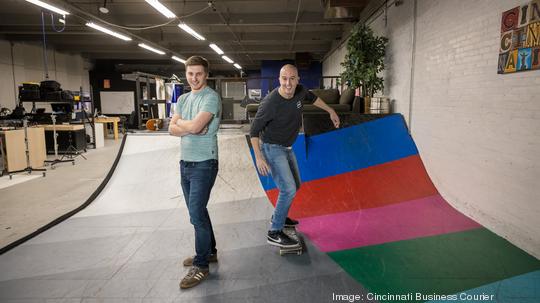
Don’t expect to see Jumpdocs on the year-end tally for largest capital raises. In fact, co-founder Blake Smith said he’s already turned down close to $2 million in venture capital.
“It’s not really our plan,” he said. “There are certain businesses that require venture capital and this is not one of them.”
But even without outside funders, Smith sees plenty of potential for Jumpdocs, especially since the year-old firm is already profitable.
“(Co-founder Chris Ridenour) has started three or four startups and this is my second. Where we are from a user standpoint and revenue one year in is where we were four years in from my last startup,” Smith said.
“When I talk with founders, they think of it as their baby and one shot. But if you think of it as a career path, then it’s pretty fun.”
The company provides boilerplate legal documents, including incorporation papers, for early-stage firms hoping to take on venture capital. As a result, these often cash-strapped startups can save time and money.
“Early-stage companies, seed-stage companies aren’t really lucrative or profitable clients for law firms,” Smith said. “So the question is how do we make early-stage companies work on a law firm’s budget without crushing the early-stage companies’ budgets.”
Jumpdocs grew out of Smith’s experience launching his first startup, Cladwell, a platform that helps people select what to wear each day. According to Smith, Cladwell ended up spending thousands to fix early legal mistakes and Jumpdocs’ services could have prevented many of them.
Since January, the company has grown 4.5 times, he said. That’s due in part to a service launched this year that allows law firms to white-label Jumpdocs’ offerings, creating a streamlined experience. Smith said Jumpdocs has a full pipeline of firms interested in their white-label offering heading into 2022, but the company also plans to expand its legal filings.
The platform currently serves companies that want to be incorporated in Delaware and bring on venture backing, but that’s not always the right path, Smith said, another lesson learned from his days at Cladwell and the reason why Jumpdocs isn’t taking on its own investors. By broadening its available filings, Jumpdocs can tap into another pool of up-and-coming firms, giving its growth trajectory even more momentum.
– Meg Erpenbeck
Akru
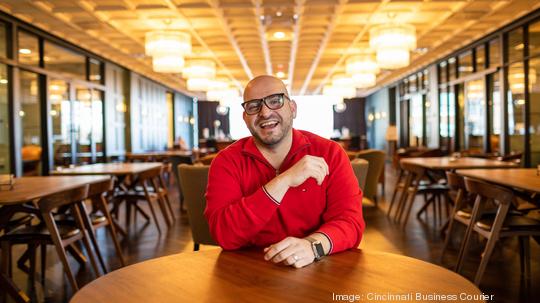
2021 was a huge year for Oakley-based Akru, a new platform that aims to eliminate the barrier to entry for commercial real estate investing.
It underwent a rebranding, launched its platform, kicked off a capital raise and grew its C-suite, recruiting a new chief financial officer from Procter & Gamble and a chief operating officer to open a Florida office.
Akru also signed up California heavyweight Draper Goren Holm as an investor. The latter assists early-stage startups in both the fintech and blockchain sector, and its early investments include Twitter, Tesla and Skype.
But according to CEO and founder Mohsin Masud, his team is just getting started.
“Akru is playing in a completely new space and there are very few competitors doing the same thing,” Masud said.
Akru’s platform breaks down properties’ values into tokens that can then be purchased by investors, creating a lower barrier to entry for real estate investing since investors are only purchasing a piece of a property.
Masud said there are more than 225 users on Akru’s platform, three properties available for investing and about $1 billion in real estate that officials are negotiating to add in the coming months. Akru will also debut a specialty portal for wealth managers to invest in properties on behalf of clients, which Masud said will help expand the company’s investor base overnight.
It’s also eyeing international expansion. The company now has Midwest-based assets on the platform but intends to expand into the Sun Belt and South, the coasts — and in the coming years across the European Union and Asia. To support that growth, Akru is hiring up. It has 28 employees spread across the globe, and that head count is projected to double in six months.
– Meg Erpenbeck
Neural Payments

Cincinnati’s fintech scene is picking up serious steam. While Neural Payments, a Montgomery-based startup, has led a largely quiet existence since its 2019 launch, it could soon be a leader of the pack.
Mick Oppy, who held senior roles at Worldpay and Fifth Third spinoff Vantiv, came up with the concept for Neural during “Idea Week” at MIT, where he was pursuing his MBA.
Neural is unique. Its SaaS, or software as a service, solution sits inside a bank or credit union, allowing users to send money to anyone — no third-party app required. Put simply, if you wanted to send a friend $50, Neural’s tech would funnel that payment to PayPal or Venmo — whatever their preferred location may be — cutting down a clunky experience and bridging a gap between fintech and financial institutions.
Neural’s initial target customers include smaller community banks and credit unions that often can’t afford legacy solutions. Oppy puts Neural’s potential customer count in the thousands, but there’s no reason to believe the company can’t go after big industry players as well. The tech could also lend itself to retail – for instant, point-of-sale experiences.
“There’s plenty of market,” Oppy said. “So far, it’s all been word of mouth, and that’s growing fast. We’re getting calls all the time.” As far as its own finances, the startup is backed by big board names, including Isaac Saldana, CEO of Memo, and former co-founder of Denver-based unicorn SendGrid, a transactional email delivery and management service company. And Neural Payments seemingly raised its first $1 million easily in the heart of the pandemic, making a series of just 12 phone calls, Oppy said. To date, Neural has landed $3 million in funding.
A Series A is likely in 2022 as the company starts to bring in revenue. Oppy is bullish on the company’s rocket ship potential and sees Neural Payments moving from a dozen or so customers in 2021 to 400-500 by spring 2022. In recent months, the company announced an API integration with Austin-based Q2, a fintech that makes software for banks, which should prove a major boost. Neural Payments’ solution will be available to hundreds of financial institutions on Q2’s digital banking platform — the first wave of implementations with “many more planned,” Oppy said.
– Liz Engel
Check out the slideshow below for 11 more startups you need to watch:



